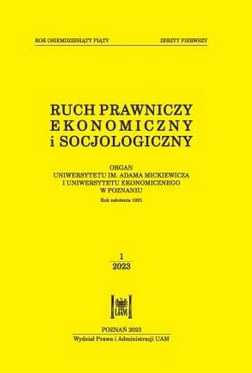RÓŻNORODZAJOWE USTALENIE ALTERNATYWNE W NIEMIECKIM PRAWIE KARNYM
HETEROGENEOUS ALTERNATIVE CONVICTION IN GERMAN CRIMINAL LAW
Author(s): Michał GłuchowskiSubject(s): Criminal Law, Criminology
Published by: Uniwersytet Adama Mickiewicza
Keywords: alternative conviction; Wahlfeststellung; German law; nullum crimen sine lege; nulla poena sine lege; presumption of innocence; principle of legal certainty; receiving stolen goods;
Summary/Abstract: There is a view prevalent in both German judicature and German legal literature that, under certain circumstances, the court can convict a person without having determined the type of crime they have committed. Examples include a conviction on the grounds of ‘theft or receiving stolen goods’ in cases when stolen goods have been found in possession of the accused but how they had been obtained was not determined. This practice is not regulated by the statutes and has been considered unconstitutional by some scholars for breaching the principle of nullum crimen, nulla poena sine lege, the principle of the presumption of innocence, and the principle of legal certainty. Furthermore, one of the panels of the Federal Court of Justice voiced criticism of heterogeneous alternative convictions in 2014. This article systematizes the practice of alternative conviction in the German criminal procedure, further focusing on the type of the practice that causes most controversy. This is followed by a historical account showing how the legal institution of heterogeneous alternative conviction has developed, as well as covering the conditions for applications and all the doubts of a constitutional nature. The author shares the view of the Grand Panel for Criminal Matters at the Federal Court of Justice and the Federal Constitutional Court, which recognized that the current practice is in no breach of the Basic Law. However, a call is also expressed that alternative convictions be regulated by law.
Journal: Ruch Prawniczy, Ekonomiczny i Socjologiczny
- Issue Year: 85/2023
- Issue No: 1
- Page Range: 211-224
- Page Count: 14
- Language: Polish

